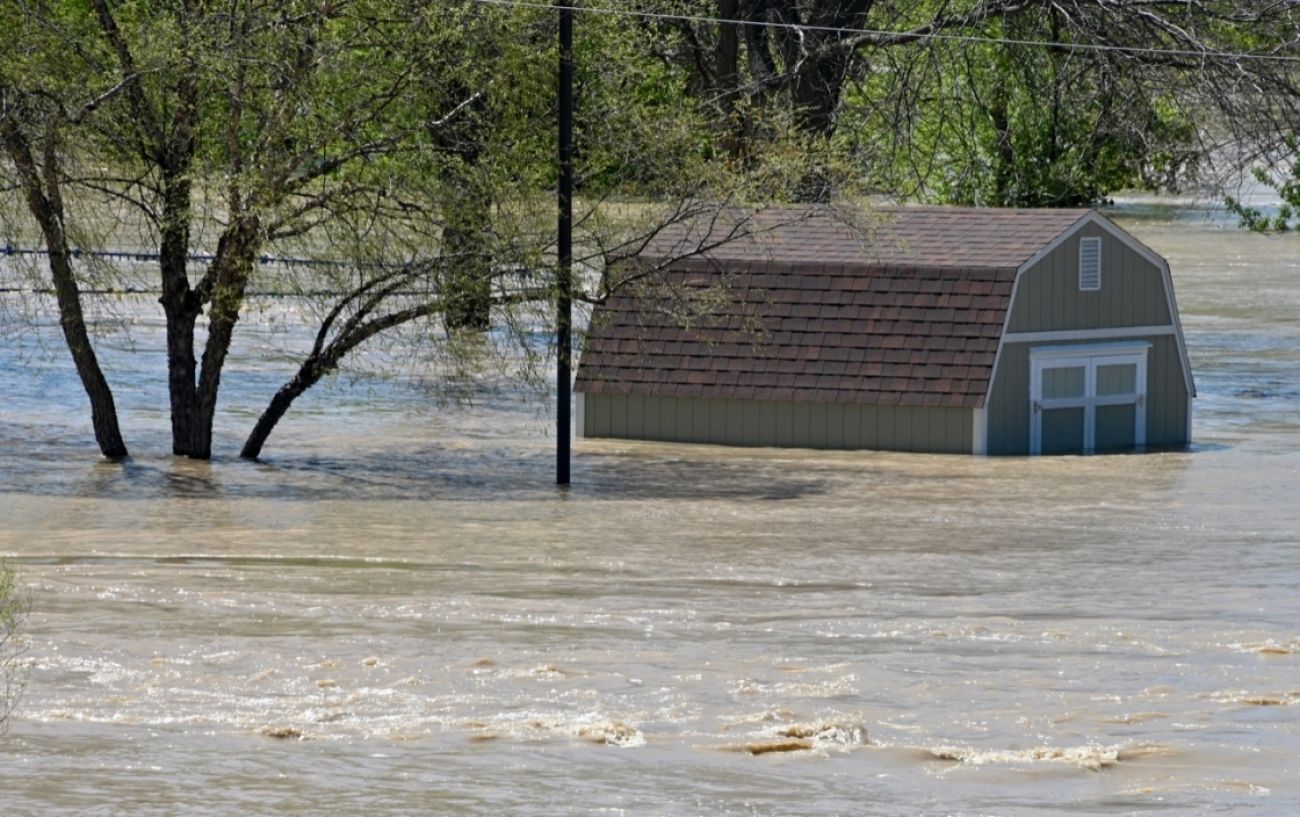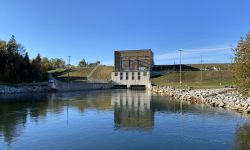Michigan dam safety program underfunded, understaffed, slow to enforce

Michigan’s dam safety program suffers from a “culture of minimal enforcement” and lacks the time, staff and budget to properly do its job.
That’s the conclusion of an independent review team tasked with scrutinizing Michigan’s dam safety program in the wake of the May 19 Edenville and Sanford dam failures that flooded downstream communities in mid-Michigan, forcing 11,000 people to evacuate and causing $200 million in damages to more than 2,500 structures.
The 267-page Association of State Dam Safety Officials report, released Thursday, notes that “rigorous enforcement of dam safety violations is seldom used and that this has existed for decades.”
“The culture of minimal enforcement has become the commonly accepted practice in Michigan,” the review states, exposing downstream residents and the environment to risk.
But “perhaps the most outstanding finding” is the dam safety program’s chronic understaffing, said review team member Bill Bingham during a presentation Thursday before the Michigan Dam Safety Task Force, a separate governor-appointed body tasked with recommending changes to Michigan’s dam safety regime.
“The current staff is doing the very best job they can,” Bingham said. But the program within the Michigan Department of Environment, Great Lakes and Energy is “understaffed to perform the mission.”
Reviewers concluded Michigan’s dam safety regime should include 11 staff members, including six dam safety engineers and two enforcement officers, rather than the current staffing level of two inspectors plus a manager.
The state for years has employed just two inspectors to oversee Michigan’s 1,060 state-regulated dams. With so few staff to conduct inspections, inspection duties are often outsourced to contractors hired by dam owners themselves.
Following the Edenville and Sanford failures, EGLE leaders announced plans to hire a third inspector. Michigan’s recently-approved budget includes money to hire two more, for a total of five inspectors.
In a statement Thursday, EGLE Director Liesl Clark said the report “acknowledges the decades of underinvestment in infrastructure in Michigan, which includes many dams that, if they failed, would put downstream residents’ lives in jeopardy.”
Related stories:
- Safety woes linger at Edenville Dam after the huge flood, Michigan report finds
- Edenville Dam inspector: ‘People want to point fingers,’ but I did my best
- Two heirs bought Midland dams as a tax shelter. Tragedy followed.
- After Midland floods, a question: Where did waters carry toxic chemicals?
Clark said EGLE and the state dam safety task force will “take a close look” at the recommendations and “welcome working collaboratively with the Legislature and other stakeholders to strengthen Michigan’s Dam Safety Program while also holding owners accountable for safely operating their dams.”
Bingham noted that many of the review team’s recommendations would require legislative approval.
The Dam Safety Task force will use the report as part of a broader review that will recommend changes to Michigan’s dam safety regime. Recommendations are expected in early 2021.
Details about what caused the Edenville Dam to fail, and who is to blame, will come later, as part of an independent investigation.
State and federal regulators failed to force the dam’s owner, Boyce Hydro, to make repairs despite decades of warnings that the dam could not handle a heavy flood. The failure has prompted a host of class-action lawsuits seeking to assign blame for the disaster.
With no dedicated funding available to step in and make repairs when a dam owner is unable or unwilling to address safety issues identified during inspections, Michigan regulators frequently opt not to cite dam owners, fearing that fines will only further reduce the owner’s ability to pay for repairs.
Among a host of recommendations, the peer review team said Michigan should establish a dam safety emergency fund to fix unsafe dams when owners won’t, and a revolving loan fund to help public dam owners pay for needed repairs and upgrades.
The emergency fund “would give Michigan the funds to act in a timely way” if a dam owner cannot or will not do so, Bingham said.
Among the peer review team’s other recommendations:
- Update Michigan’s flood control standards, which require dams like Edenville to meet only 50 percent of the probable maximum flood. Michigan’s standards are among the weakest in the nation.
- Require owners of aging high-hazard dams, which could kill people if they fail, to conduct “detailed re-evaluation” of their dams that could identify safety defects or other issues. The reviewers noted that many Michigan dams have aged beyond their intended lifespan and “have never been re-evaluated.”
- Collaborate with Association of Dam Safety Officers and the Federal Energy Regulatory Commission, which regulates hydropower-generating dams, to ensure a smoother transfer of regulatory authority when FERC revokes the license for a dam, passing regulatory authority over to the state. When FERC revoked the Edenville Dam power-generating license in September 2018, Michigan inherited regulatory power but state officials said they lacked key information about the dam because FERC had classified the documents.
- Inspect high and significant-hazard dams more frequently: Once a year for high-hazard dams and every other year for significant hazard dams. Currently, state-regulated dams in Michigan are inspected every three to five years.
- Bolster permitting requirements for dam owners, including requiring owners of high or significant hazard dams to obtain independent review of the dams every 10 years or less.
The reviewers also recommended a host of changes to the dam safety program, from updating the position description for the dam safety program manager and publishing an annual report to developing an annual training plan for dam safety staff.
Read the full report here.
Michigan Environment Watch
Michigan Environment Watch examines how public policy, industry, and other factors interact with the state’s trove of natural resources.
- See full coverage
- Subscribe
- Share tips and questions with Bridge environment reporter Kelly House
Michigan Environment Watch is made possible by generous financial support from:
Our generous Environment Watch underwriters encourage Bridge Michigan readers to also support civic journalism by becoming Bridge members. Please consider joining today.
See what new members are saying about why they donated to Bridge Michigan:
- “In order for this information to be accurate and unbiased it must be underwritten by its readers, not by special interests.” - Larry S.
- “Not many other media sources report on the topics Bridge does.” - Susan B.
- “Your journalism is outstanding and rare these days.” - Mark S.
If you want to ensure the future of nonpartisan, nonprofit Michigan journalism, please become a member today. You, too, will be asked why you donated and maybe we'll feature your quote next time!






